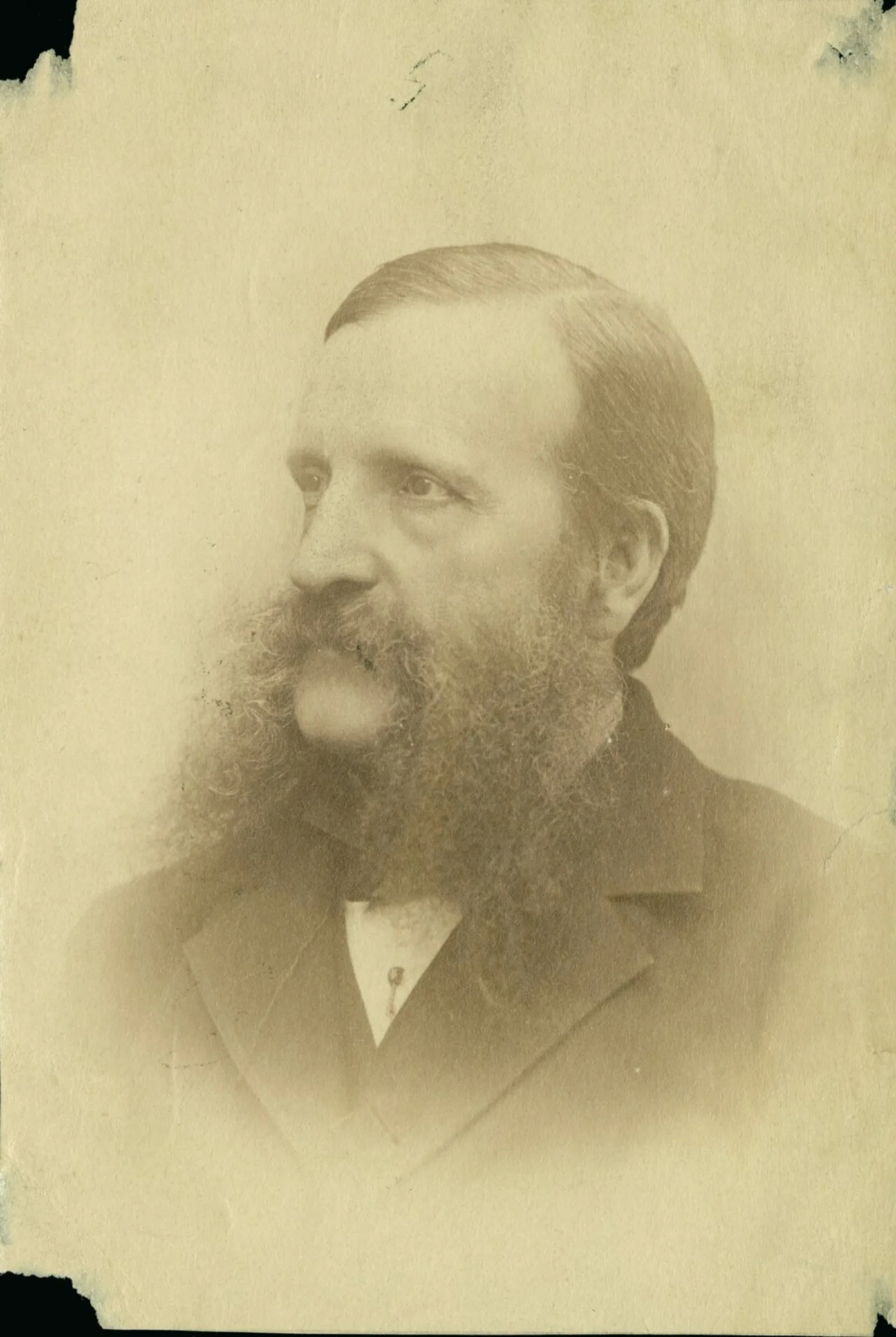On the first day of 1874, William Frederick Poole boarded a train in Cincinnati bound for Chicago. Awaiting him at the other end was something that could serve as a belated birthday present (Poole had turned 52 on Christmas Eve). It was a new position created specifically with him in mind. He was to become the first librarian of the Free Library of the City of Chicago, the beginning of today’s Chicago Public Library system.
January 1, 1874 also marked, by coincidence, the one-year anniversary of the Free Library opening to the public with great fanfare. Proclaimed by the Chicago Tribune “another grand Chicago enterprise” that would establish “Chicago as the literary headquarters of the Northwest,” the library was housed in a converted water tank, one of the handful of structures in the city’s center to have survived the Great Fire of October 1871.
The library itself was a legacy of the fire. In the aftermath of the disaster, people from around the world had donated books to Chicago in the mistaken belief that the city’s public library had been destroyed. In fact, no such library had existed, but now it could, offering Chicagoans a place to learn and grow as the city rebuilt. The library’s board intended the water tank to be a temporary home. Appointing Poole as the first librarian was a more long-term investment.
Poole fit the city and the position. Like Chicago, he was known for his energy and innovation. He had been born on December 24, 1821 in Salem, MA, the descendant of Puritans who’d first arrived in New England in the 1630s.
His family owned a lot of land that had been passed down through the centuries. Like many of his forebears, he attended Yale. In other words, he was the oldest of old school. But while his background might have led to a character shaped by and perhaps limited by the past, he was from his earliest years a man of the Industrial Age. While still at Yale, he took over the role of librarian for a college society to which he belonged and, in the course of organizing their collection of periodicals, produced the work by which his name is still known.
Poole’s Index to Periodical Literature first appeared in 1849. In it, Poole recognized the value to be found in the nation’s growing body of mass-produced magazines and journals and the need to create a resource by which this collected knowledge could be organized and easily accessed.
The son of Salem had, by more than a century, anticipated the search engine. A second, expanded edition would appear in 1853, by which time Poole was working at the Boston Mercantile Library, after a brief stint at the already venerable Boston Athenaeum.
He used his time at these institutions to explore new ways of organizing their catalogs and collections and became interested in how libraries were designed and built. The Mercantile Library and the Athenaeum, to which he would return in 1856, were subscription libraries, their collections available to those who financed them. But Poole was interested in a different kind of institution––one that, once again, was very much of its moment: the public library, free and open to all.
In 1869, he became the head librarian at the Cincinnati Public Library.
The Cincinnati library had started as a subscription library but became a public one in 1853. Poole relished the opportunity to lead this institution. But by the 1870s, it was clear that influence in the region was shifting away from river cities like Cincinnati and St. Louis to the relatively young metropolis rising swiftly on the shore of Lake Michigan, Chicago.
Even the Great Fire of 1871 could not stop Chicago from becoming the commercial and transportation center of the Midwest, if not the nation. A new Free Library offered new opportunities for Poole: he could build both the physical structure and the collection from the ground up. He shared Chicago’s sense of its own importance. The Free Library could become a model for the nation, if not the world.
A third, larger edition of the Index appeared in 1882. It resulted from the work of Poole and fellow librarians, many of them members of the American Librarian Association, which he’d helped to establish. Even as Poole led the Free Library and worked on expanding his Index, he continued to professionalize his field. When the trustees of the Newberry Library looked for someone to lead their new institution in 1887, Poole appeared the obvious choice.
The position at the Newberry drew on the breadth of Poole’s experience. The library’s collection was non-circulating, like the Boston Athenaeum’s, but it was free and open to the public, like Cincinnati and Chicago’s libraries.
%20painting%20by%20G.P.Healy%201891_o3.webp)
The Newberry once again offered Poole the chance to build a collection and shape the design of the space that would house it. As the first librarian, Poole also had to establish the institution’s culture.
“His address was affable and few men exercising executive functions so happily blend tact and suavity in management of subordinates,” the Tribune wrote about his management style. “His heaviest responsibilities were lightened by the cordial cooperation which he received invariably from his assistants of every grade, all of whom, inspired by his considerate and generous treatment, worked under him with loyal earnestness and genuine affection.”
While Poole’s legacy was lasting, his tenure was short. The man of seemingly endless energy and innovation succumbed to “nervous prostration,” the result of overwork, and died on March 1, 1894. He would be buried where he was born, in Salem.
About the Author
Paul Durica is the former Director of Exhibitions at the Newberry.
